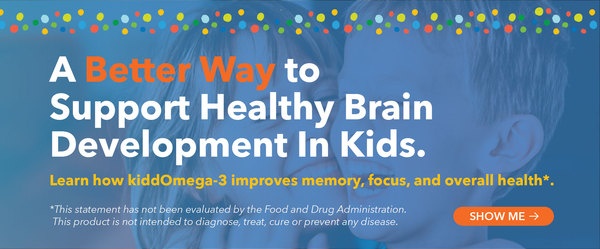
By Ian D. Bier, ND, PhD, LAc, FABNO
Over a span of 20 years ranging from 1997-2016, attention deficit hyperactive disorder (ADHD) diagnoses have almost doubled in prevalence—from 6.1 % to 10.2%—in children and adolescents aged 4-17.1
With the release of the 5th edition of the Diagnostic and Statistical Manual of Mental Disorders (DSM-5) in 2013, the criteria for identifying ADHD symptoms was expanded and modified to make it easier for physicians and primary care doctors to provide a better diagnosis. Instead, what many parents, teachers, and physicians are seeing is a larger percentage of children being misdiagnosed based on this criteria and suffering the consequences of taking unnecessary prescription medicine during the most important stage of their development.
What Is ADHD?
ADHD is a complex, childhood-onset neuropsychiatric disorder that is defined by the DSM-5 as a persistent pattern of inattention and/or hyperactivity-impulsivity that interferes with functioning or development as characterized by six or more symptoms of inattention and/or hyperactivity and impulsivity.2 In addition to this criteria, physicians must determine whether or not the symptoms have been present over a long period of time, are a significant impairment to their daily lives, and exist in more than one setting.
Some of the most commonly identified symptoms can include:
- Failing to pay attention to details
- Having difficulty sustaining attention during tasks or activities
- Not following through on tasks
- Easily distracted by extraneous stimuli
- Often forgetful in daily activities

What Symptoms can Be Misdiagnosed as ADHD?
While the above symptoms are examples of ADHD, they are so broad that the underlying reasons for the behavior may be due to something other than a neurochemical imbalance.
Nature-Deficit Disorder
The nature-deficit disorder is not a medical diagnosis term but a common trend that researchers have found to lead to attention difficulties, higher rates of illness, and Vitamin D deficiency.3 For example, if you take the same children with the same ability and you put half of them on a cement playground and in nature where it’s green for the same amount of time, you see decreased behavioral issues in kids who are actually out in nature and exposed to the green and the trees.
Sleep Issues
Sleep quality is a major factor that can impact attention spans of children over a longer period of time. Issues that result in prolonged poor-quality rest can be detrimental to the delicately developing nervous and immune systems of children. Poor sleep can easily lead to children exhibiting behavior that mimics that of the DSM-5 criteria. Therefore, it is up to the parents and the physician to look into these other potential explanations before considering taking measures related to ADHD mitigation.
Anxiety or Emotional Trauma
Attention difficulties, such as constant worrying or being easily distracted by thoughts, can stem from feelings of anxiety. Trouble managing emotions or not having the right coping skills to deal with a challenging situation such as a divorce, a family death, or bullying at school can lead to symptoms similar to those that characterize ADHD.4
Poor Diet
Children who eat poor diets filled with high levels of sugar or with chemicals and additives often exhibit similar types of attention and hyperactivity behavior. This comes as no surprise, as nutrition deficiencies, particularly in polyunsaturated fatty acids, magnesium, and zinc have been linked to poor brain development, as these are essential components involved in supporting cellular structure, synaptic transmission, protein synthesis, and neural plasticity.*5
How to Avoid a Misdiagnosis
Physicians and parents looking to prevent a misdiagnosis may find it useful to keep these key questions in mind:
- Does the child have trouble sleeping, such as snoring loudly, tossing and turning, or the inability to fall asleep?
- Has the child been dealing with arguments, challenges, or anxiety-inducing situations?
- Has the child experienced a recent life-changing event, such as adjusting to a new school?
- Does the child spend too much time in front of the screen?
- Does the child have trouble focusing on academics or learning the skills to do well in an academic environment? In what other settings do these symptoms appear?
- What types of food and nutrients is the child getting? Is it consistent?\
Due to the complex nature of ADHD, physicians should consider a diagnosis of exclusion approach by excluding every other potential option before coming to a firm conclusion. If a child is not eating properly or having restless nights, this alone can be enough to induce symptoms of exhaustion that result in the inability to focus. It may also lead to restless, fidgety behavior.
Getting a holistic perspective on a child’s symptoms and ensuring that they are getting the proper treatment will keep them healthier in the long run. Parents may also find it useful to keep track of their child’s diet, sleep, and activities in a log. This type of information can be vital when discussing a treatment plan with a doctor, and it may reveal previously overlooked factors that might be contributing to their behavior.
Prior to considering prescription medication, it can be extremely helpful to consider involving a cognitive-behavioral psychologist who could help provide a different perspective for both parents and children. A neuropsychological evaluation can be considered, as they are typically far more comprehensive than school-administered psycho-evaluations. This type of evaluation can help uncover the root of a child’s learning and/or attention challenges and further prevent a misdiagnosis.
While ADHD is a real clinical diagnosis, the current broad, overlapping guidelines and criteria have made it more difficult to diagnose accurately. Attention problems can stem from a variety of factors and, as such, must be carefully observed by parents, teachers, and doctors to eliminate all other possibilities. With some patience and discernment, parents can prevent their children from taking unnecessary prescription medications and potentially facing long-term harmful effects for an attention disorder they don’t have.
*These statements have not been evaluated by the Food and Drug Administration. This product is not intended to diagnose, treat, cure or prevent any disease.

Sources:
1 “Twenty-Year Trends in Diagnosed Attention/Hyperactivity… - JAMA Network.” 2018. https://jamanetwork.com/journals/jamanetworkopen/fullarticle/2698633. Accessed July 15, 2019.
2 “The DSM-5: Classification and Criteria Changes - World Psychiatry.” 2013. https://www.ncbi.nlm.nih.gov/pmc/articles/PMC3683251/. Accessed July 15, 2019.
3 “How to Protect Kids From Nature-Deficit Disorder - Greater Good Magazine.” 2016. https://greatergood.berkeley.edu/article/item/how_to_protect_kids_from_nature_deficit_disorder. Accessed July 15, 2019.
4 “ADHD and Anxiety: What You Need To Know - Understood.” https://www.understood.org/en/learning-attention-issues/child-learning-disabilities/add-adhd/adhd-and-anxiety-what-you-need-to-know. Accessed July 15, 2019.
5 “Twenty-Year Trends in Diagnosed Attention/Hyperactivity… - JAMA Network.” 2018. https://jamanetwork.com/journals/jamanetworkopen/fullarticle/2698633. Accessed July 15, 2019.













-1.jpg)




